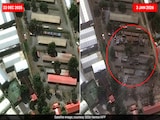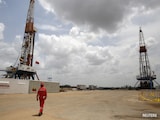Scientists have recently revealed that Australia and New Zealand are best placed to survive a nuclear apocalypse and help reboot collapsed human civilisation.
The study, published in the journal Risk Analysis, has found that there are just a few island nations that could continue to produce enough food to feed their population after an "abrupt sunlight-reducing catastrophe" such as a nuclear war, super volcano or asteroid strike. These countries include not just Australia and New Zealand, but also Iceland, the Solomon Islands and Vanuatu.
There would "likely be pockets of survivors around the planet in even the most severe" scenario, the researchers wrote in the study. They compared 38 island countries on 13 factors which they said would predict which ones stood the best chance of surviving in a post-apocalyptic world.
The authors of the study found that Australia and New Zealand - both robust agricultural producers and tucked away from the likely sites of northern hemisphere nuclear fallout - topped the tables, with Australia performing best overall.
"Australia's food supply buffer is gigantic, with the potential to feed many tens of millions of extra people" the study read. The researchers noted that Australia's relatively good infrastructure, vast energy surplus, high health security and defence budget all aided in pushing it to the top of the table.
Also Read | "Ridiculous": Elon Musk Fires Employee Over Falling Engagement On Tweets
However, they also said that Australia does have one major factor working against it - its relatively close military ties with the United Kingdom and the United States make it more likely to become a target in a nuclear war. In this area, New Zealand displayed some advantages because of its longstanding nuclear-free status, the researchers wrote.
"We have this super efficient food export economy that could feed New Zealanders multiple times over just from exports," said one of the study's authors, Professor Nick Wilson from the University of Otago, Wellington. Mr Wilson also added that even in the worst-case scenario - a 61 percent reduction in crops during a prolonged nuclear winter (something which scientists believe will happen following large-scale atomic warfare) - New Zealanders would still have enough to eat.
Other island countries would be able to produce enough food in such a crisis, however, the likely collapse of industry and social cohesion put their resilience in doubt, the researchers wrote.
The study also predicted that in an event of a nuclear apocalypse, China, Russia and the US could see food production fall up to 97 percent under nuclear winter models and would be forced to rely on new food production technologies.















